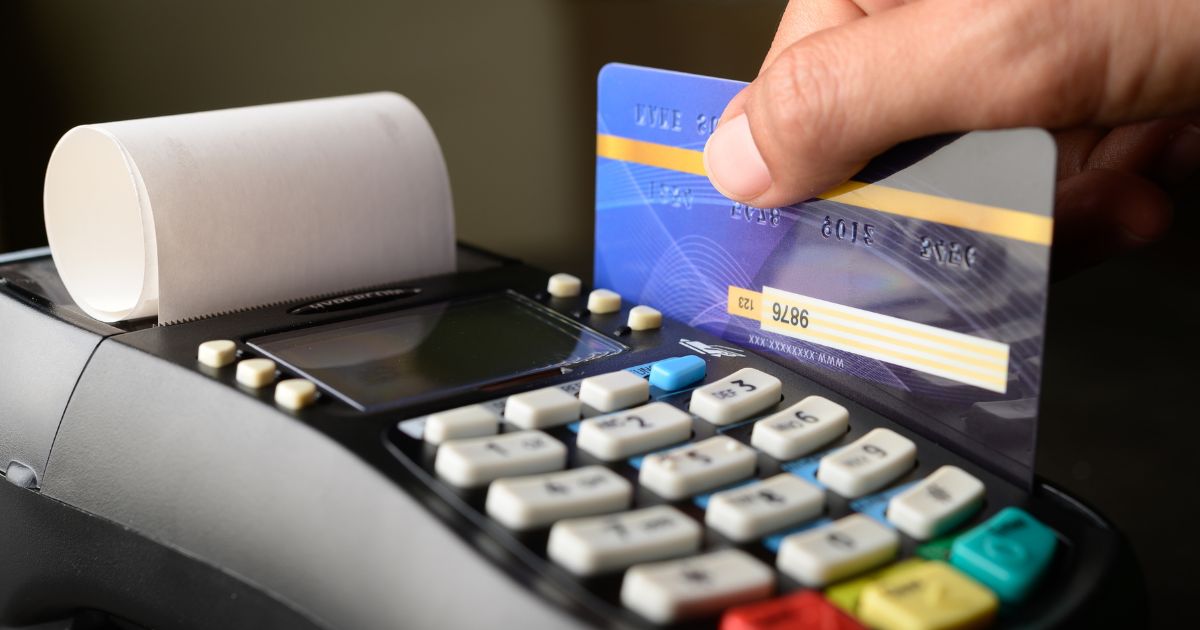
| December 22nd, 2023 |
Credit Card Processing Terminals — The Ultimate Guide for Businesses!
In the dynamic landscape of modern commerce, credit card processing terminals stand as pivotal tools, facilitating seamless transactions for businesses of all sizes. These terminals, often the unsung heroes behind the swift completion of transactions, are more than just devices. They represent the nexus point where technology, finance, and customer service converge.
What Are Credit Card Processing Terminals?
At their core, credit card processing terminals are hardware devices that enable businesses to accept and process credit and debit card payments. These terminals are equipped with various technologies that securely capture and transmit payment information between the card issuer and the merchant’s bank.
Types of Credit Card Processing Terminals —
1. Countertop Terminals:
Ideal for businesses with fixed checkout locations, these terminals are stationed on countertops and connected to a power source and the internet. They offer reliability and a range of connectivity options, including Wi-Fi, Ethernet, or phone lines.
2. Wireless Terminals:
Suited for businesses requiring mobility, these terminals operate via wireless networks like Bluetooth or cellular connectivity. They empower on-the-go businesses such as food trucks, delivery services, and event vendors to accept payments anywhere.
3. Mobile Card Readers:
Compatible with smartphones or tablets, these readers transform mobile devices into payment terminals. They leverage apps and plug-in card readers, making them convenient for small businesses or freelancers needing flexibility and portability. Mobile card readers have democratized payment processing, empowering businesses of all sizes to accept payments conveniently and securely. Their evolution continues to pave the way for more innovative and accessible financial solutions in the market.
How do Credit Card Processing Terminals Work?
- Card Data Capture: When a customer swipes, inserts, or taps their card, the terminal captures the card’s information.
- Encryption and Transmission: The terminal encrypts the data and transmits it securely to the payment processor.
- Authorization: The payment processor communicates with the card issuer to approve or deny the transaction.
- Completion: If approved, the transaction is completed, and the funds are transferred to the merchant’s account.
Benefits of Using Credit Card Processing Terminals —
- Enhanced Customer Experience: Speedy and secure transactions contribute to a positive customer experience, boosting satisfaction and loyalty.
- Increased Sales: Accepting various payment methods encourages more sales, as customers often prefer card payments for convenience.
- Reduced Risk: Compliance with security standards and encryption protocols minimizes the risk of fraud or data breaches.
Choosing the Right Terminal for Your Business —
Several factors influence the choice of a credit card processing terminal:
- Business Type: Consider the nature of your business—whether it’s brick-and-mortar, online, mobile, or a combination.
- Connectivity Needs: Assess the availability and reliability of internet or cellular connectivity at your business location.
- Security Features: Ensure the terminal complies with Payment Card Industry Data Security Standards (PCI DSS) and offers encryption and tokenization.
- Costs and Fees: Evaluate the upfront costs, transaction fees, and any additional charges associated with the terminal and its services.
Key Considerations for Implementation and Maintenance —
- Training and Support: Ensure that your staff receives adequate training to operate the terminal efficiently. Additionally, prioritize vendors offering reliable customer support.
- Software Updates and Security: Regularly update the terminal’s software to patch vulnerabilities and maintain compliance with security standards.
- Integration with POS Systems: If you use a Point of Sale (POS) system, ensure compatibility and seamless integration between the terminal and the POS.
Future Trends in Credit Card Processing Terminals —
The evolution of credit card processing terminals continues to embrace technological advancements. Key trends shaping the future include:
- Contactless Payments: With the rise of NFC-enabled cards and mobile wallets, terminals supporting contactless payments are gaining prominence.
- Enhanced Security Features: Expect terminals to adopt more robust security measures, such as biometric authentication and AI-powered fraud detection.
- Integration of AI and Analytics: Terminals might leverage AI algorithms to provide real-time analytics and insights for businesses.
Conclusion —
Credit card processing terminals play a fundamental role in the modern economy by enabling seamless and secure transactions. Understanding their types, and functionalities, and selecting the right terminal for your business is paramount. As technology advances, these terminals will continue to evolve, offering businesses innovative solutions to meet evolving consumer demands and security standards. Embrace these advancements to stay ahead in the ever-evolving landscape of commerce.
